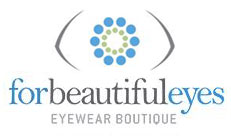Management for Dry Eye Disease in The Junction
At For Beautiful Eyes, we understand the discomfort and frustration that comes with dry eye disease. Our goal is to provide effective strategies to help you manage this chronic condition and improve your quality of life.
What is Dry Eye Disease?
Dry eye disease is a chronic condition that occurs when your eyes do not produce enough tears or when the tears evaporate too quickly. This can lead to symptoms ranging from mild dryness and discomfort to severe pain, blurred vision, and frequent eye infections.
How Do You Know If Your Eyes are Dry?
Symptoms can vary depending on the severity of the condition and may include:
- Dry, itchy eyes
- Burning or stinging sensations
- Irritation
- Sticky or watery eyes
- Blurred vision
- Pain
- Foreign body sensation
Tears are essential for maintaining the health of your eyes, washing away foreign particles, and protecting against infections. When the quality or quantity of tears is inadequate, it can lead to the symptoms mentioned above.
Common Causes of Dry Eye
Dry eye can be caused by several factors, including:
- Ageing and Hormonal Changes: More common in women, especially during pregnancy, taking oral contraceptives, or going through menopause.
- Medications: Antihistamines, blood pressure medications, and antidepressants can reduce tear production.
- Environmental Factors: Dry, dusty, or windy climates, as well as prolonged exposure to air conditioning or heating systems, can exacerbate symptoms.
- Medical Conditions: Diabetes, blepharitis, lupus, arthritis, and thyroid problems increase the risk of dry eye disease.
- Eye Surgery and Contact Lenses: Procedures like LASIK and long-term contact lenses can contribute to dry eye.
Effective Management of Dry Eye in Newcastle West
Managing dry eye depends on the cause and severity of the condition. Options at For Beautiful Eyes include:
- Artificial Tears and Lubricant Drops: Over-the-counter solutions can relieve mild cases.
- Prescription Drops: These can stimulate tear production or provide short-term relief with steroids.
- Eyelid Hygiene: Heated compress masks, specialty eyelid scrubs, and sometimes antibiotic ointments for related conditions like blepharitis.
- Medication Adjustments: Switching medications that contribute to dry eye when possible.
Contact Lens Management: Limiting use or switching to different types of lenses.
How to Prevent Eye Dryness
Prevention strategies can help manage dry eye symptoms:
- Avoid dry environments, hair dryers, heaters, fans, and smoky areas.
- Wear protective eyewear outdoors or in dusty, windy conditions.
- Use a humidifier to add moisture to indoor air.
- Blink purposefully when using screens, and avoid rubbing your eyes.
- Stay hydrated by drinking plenty of water.
Long-term Management
Dry eye disease is a chronic condition that requires consistent management. Our team at For Beautiful Eyes will work with you to create a long-term strategy to keep your eyes comfortable and healthy.
Dry Eye Consultations at For Beautiful Eyes
Don’t let dry eye disease affect your quality of life. Schedule a consultation with us today. Our optometry team is dedicated to providing personalised care to help you manage your symptoms effectively.
The Junction, NSW 2291
- Monday: 9:00 AM - 5:00 PM
- Tuesday: 9:00 AM - 5:00 PM
- Wednesday: 9:00 AM - 5:00 PM
- Thursday: 9:00 AM - 5:00 PM
- Friday: 9:00 AM - 5:00 PM
- Saturday: Closed
- Sunday: Closed
